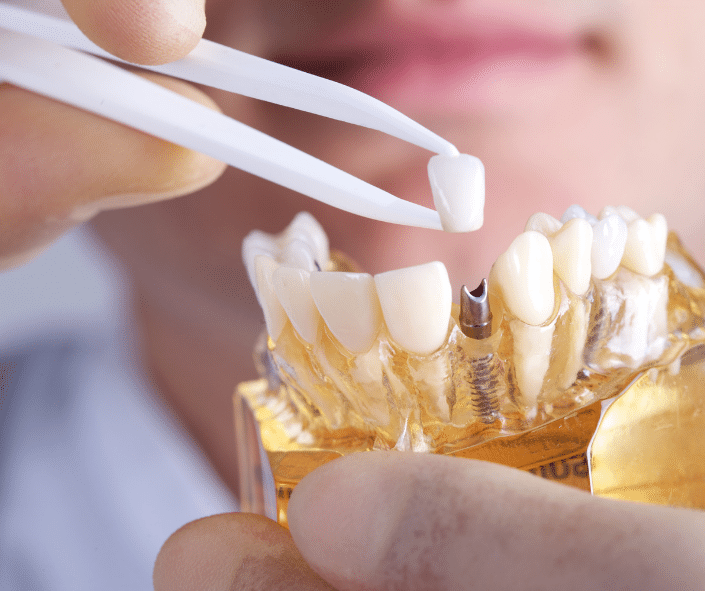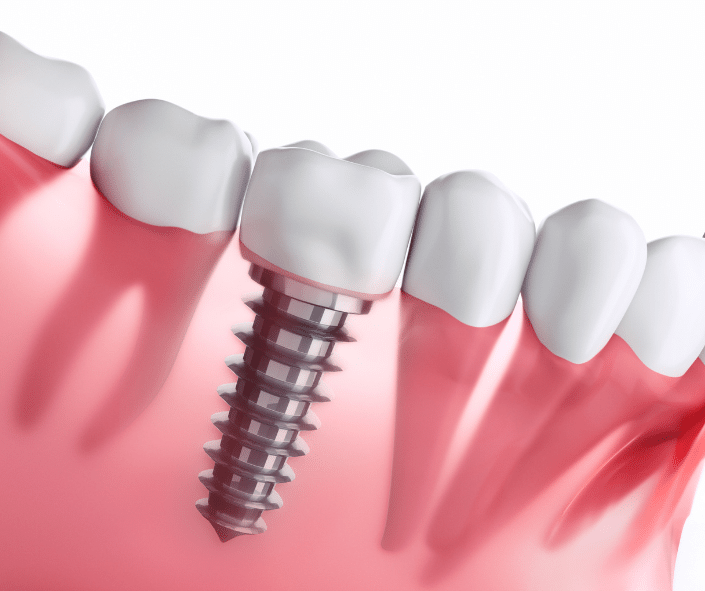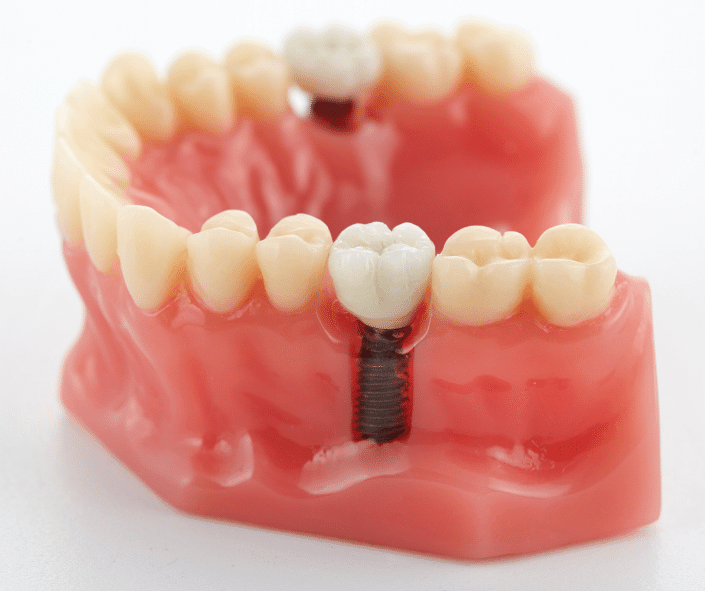Dental Implants: Natural and Durable Tooth Replacement Solution
The dental implant itself is typically made of biocompatible materials, such as titanium or titanium alloy, which allow it to fuse with the surrounding bone in a process called osseointegration. This fusion provides stability and durability for the implant.
The placement of a dental implant involves a surgical procedure where the implant is carefully positioned in the jawbone beneath the gum line. Afterward, a healing period of a few months is often required to allow the implant to integrate with the bone.
Once the implant has fused with the jawbone, an abutment is attached to the implant, which serves as a connector between the implant and the dental prosthesis. The final step involves placing a custom-made dental crown, bridge, or denture onto the abutment, providing a natural-looking and functional tooth replacement.
Dental implants offer several advantages over traditional tooth replacement options, such as dental bridges or removable dentures. They provide improved stability and functionality, feel and function like natural teeth, and help preserve the integrity of the jawbone by stimulating bone growth. Additionally, dental implants have a high success rate and can last for many years with proper care and maintenance.

Who can have dental implant treatment done?
Dental implant treatment can be considered for individuals who have lost one or more teeth due to various reasons, such as tooth decay, gum disease, trauma, or congenital conditions. However, not everyone is automatically eligible for dental implants. Several factors are taken into account to determine if a person is a suitable candidate for the treatment. Here are some considerations:
Sufficient Jawbone: Adequate bone density and volume in the jaw are necessary to support the dental implant. If the jawbone is too thin or has experienced significant bone loss, additional procedures like bone grafting may be required to augment the bone before implant placement.
Healthy Gums: Good oral health is crucial for the success of dental implants. If a person has gum disease or other periodontal issues, these need to be treated and resolved before implant placement.
General Health: Overall health plays a role in determining implant candidacy. Certain conditions, such as uncontrolled diabetes, immune disorders, or untreated heart disease, may affect the healing process and increase the risk of complications. Your dentist or oral surgeon will evaluate your medical history to determine if dental implant treatment is appropriate.
Age: Dental implants can be considered for adults of any age, provided they meet the other criteria. However, in the case of adolescents, implant placement may be delayed until jaw growth is complete.
Commitment to Oral Hygiene: Maintaining good oral hygiene is essential for the long-term success of dental implants. Candidates for dental implants should be committed to practicing proper oral hygiene and attending regular dental check-ups.
It’s important to consult with a dental professional, such as a dentist or oral surgeon, to determine if you are a suitable candidate for dental implant treatment. They will thoroughly examine your oral health, assess your specific situation, and provide personalized recommendations based on your needs.

What is the dental implant post-surgery process like?
The post-surgery process for dental implants typically involves several stages:
Recovery Period: Immediately after the surgery, there will be some discomfort and swelling around the implant site. Your dentist or oral surgeon may prescribe pain medication or recommend over-the-counter pain relievers to manage any discomfort. You may also be advised to apply ice packs to reduce swelling.
Healing Phase: Over the next few weeks, the implant will gradually fuse with the surrounding bone in a process called osseointegration. During this time, it’s crucial to follow your dentist’s instructions for oral hygiene and care to ensure proper healing. This may involve avoiding certain foods that could irritate the surgical site and adhering to a soft diet.
Follow-up Appointments: Your dentist will schedule follow-up appointments to monitor the healing process and check the stability of the implant. X-rays may be taken to assess osseointegration and ensure that the implant is integrating properly with the jawbone.
Placement of Abutment: Once the implant has fully integrated with the bone, a second minor surgery may be required to place an abutment onto the implant. The abutment is a connector piece that attaches to the implant and serves as the foundation for the final restoration (such as a crown, bridge, or denture).
Impressions and Fabrication of Restoration: After the abutment is placed and the gums have healed around it, impressions of your mouth will be taken to create a custom-made restoration. This restoration will be designed to match the color, shape, and size of your natural teeth for a seamless aesthetic appearance.
Final Placement of Restoration: Once the restoration is ready, it will be attached to the abutment. Your dentist will ensure that the fit is precise and that the restoration looks and feels natural. You may need to make minor adjustments to your bite or occlusion to ensure proper function and comfort.
Ongoing Maintenance: After the completion of the implant process, regular dental check-ups and proper oral hygiene practices are essential to maintain the health of the implant and surrounding teeth. This includes brushing at least twice a day, flossing daily, and scheduling professional cleanings every six months.
Throughout the entire process, it’s important to communicate any concerns or discomfort with your dentist or oral surgeon. They can provide guidance and address any issues that may arise to ensure the success of your dental implant treatment.


